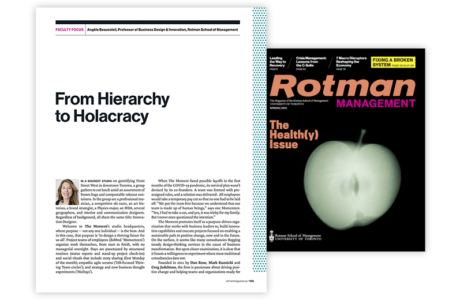How might we design kind and human-centred service experiences when our ‘customer’ has died?
In the weeks and months after my dad died, I remember speaking with my mom about the many things she needed to take care of that were essentially administrative tasks but also had an emotional impact. One time a credit card needed to be canceled and despite sharing numerous times that my dad had died, the customer service representative (there were many) continued to insist that they needed to speak with my dad to cancel the card. It wasn’t until mom said they would have to go to the cemetery to talk to him did they finally close the account. I’ve never understood why it had to be so hard? Why did the experience need to be so hard on her?
It would be easier to think that this example of a service experience going poorly after a customer death is an outlier, but I’ve had many conversations over the years with people who were tasked with transferring or closing services on behalf of someone who has died that are similar. All hard, all taking multiple conversations, all taking a lot of time to resolve and most having an emotional impact.
Reflecting on those conversations as well as my own family experience, four themes stand out:
- Accessing a real life person to speak with is frustrating and emotionally draining. Wading through a series of automated prompts, long holds with music on repeat and the general difficulty of accessing a human can be a significant challenge. The frustration we feel for something as mundane as a billing question can be exasperating and triggering when handling the affairs of someone who has died.
- Rarely is there a clear policy, clear steps or clear actions to act as a guide. It’s difficult to know what to expect in terms of process and how long it will take to transition or close an account or service. When someone finally reaches a human, the information is often unclear and inconsistent which results in calling back multiple times and speaking with multiple people. This takes a lot of cognitive and emotional effort for the person acting on behalf of our customer. Imagine going through this experience for bank accounts, insurance policies, credit cards, telephone or internet services, subscription services, etc.
- The paperwork and documentation is a heavy load. Closing or transitioning a service often requires providing a death certificate and other documentation for each and every service. Canadians have varying degrees of preparedness when it comes to death and dying. If a spouse or partner is acting on a customer’s behalf, and their name is on the account or service, some elements might be smoother. But that’s not always the case which makes this process even more difficult and challenging. If an adult child, sibling or other trusted advisor is handling their affairs it can be even more challenging.
- People are grieving and that makes everything harder. There are many conceptualizations of how we move through grief as humans. Rather than a single path forward, the experience of grief is much more messy, non-linear and deeply individual. Imagine trying to close a service in the midst of grief — unpredictable, tiring, sad, angry and oftentimes emotionally overwhelming. My hunch is that customer service representatives often don’t have the training to know how to engage with people who are grieving or understand they may not be fully themselves. This not only results in inefficiencies but must also create difficult work experiences for the employees who are engaging in these service experiences.
Each of these four themes are opportunities to design a service experience that not only supports our customer after they die but will also result in more efficient business processes while creating kind and caring experiences for the person acting on their behalf.
This leads me back to my original question:
What should the goal be when delight is likely just not possible or should not even be part of our framing?
What is it that people need the service experience to be? Should the goal be to design an experience that is Smooth? Kind? Efficient? Caring? Tolerable? Short?
If you’ve had a personal experience or supported someone else as they took on the task to close or transition a service, what did you hope for? If you had a poor experience, what would have made it better? If you had a positive experience, how would you describe it? I invite you to leave your thoughts in the comments.
I’d like to extend my gratitude to those who have reached out over the past couple of weeks. I’ve had wonderful conversations about death and the service experience. If you are thinking about these questions and grappling with how to design better experiences for service endings, I’d love to talk.








